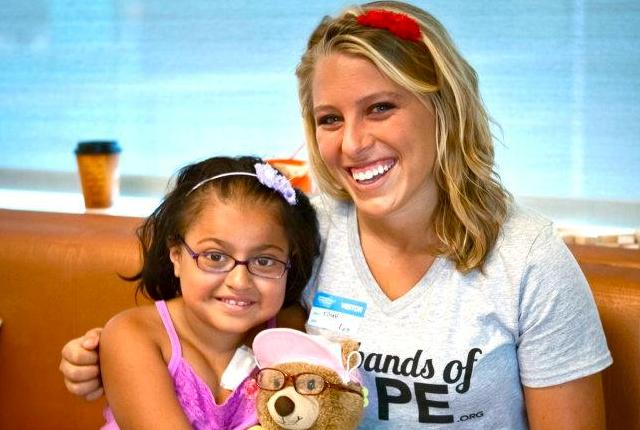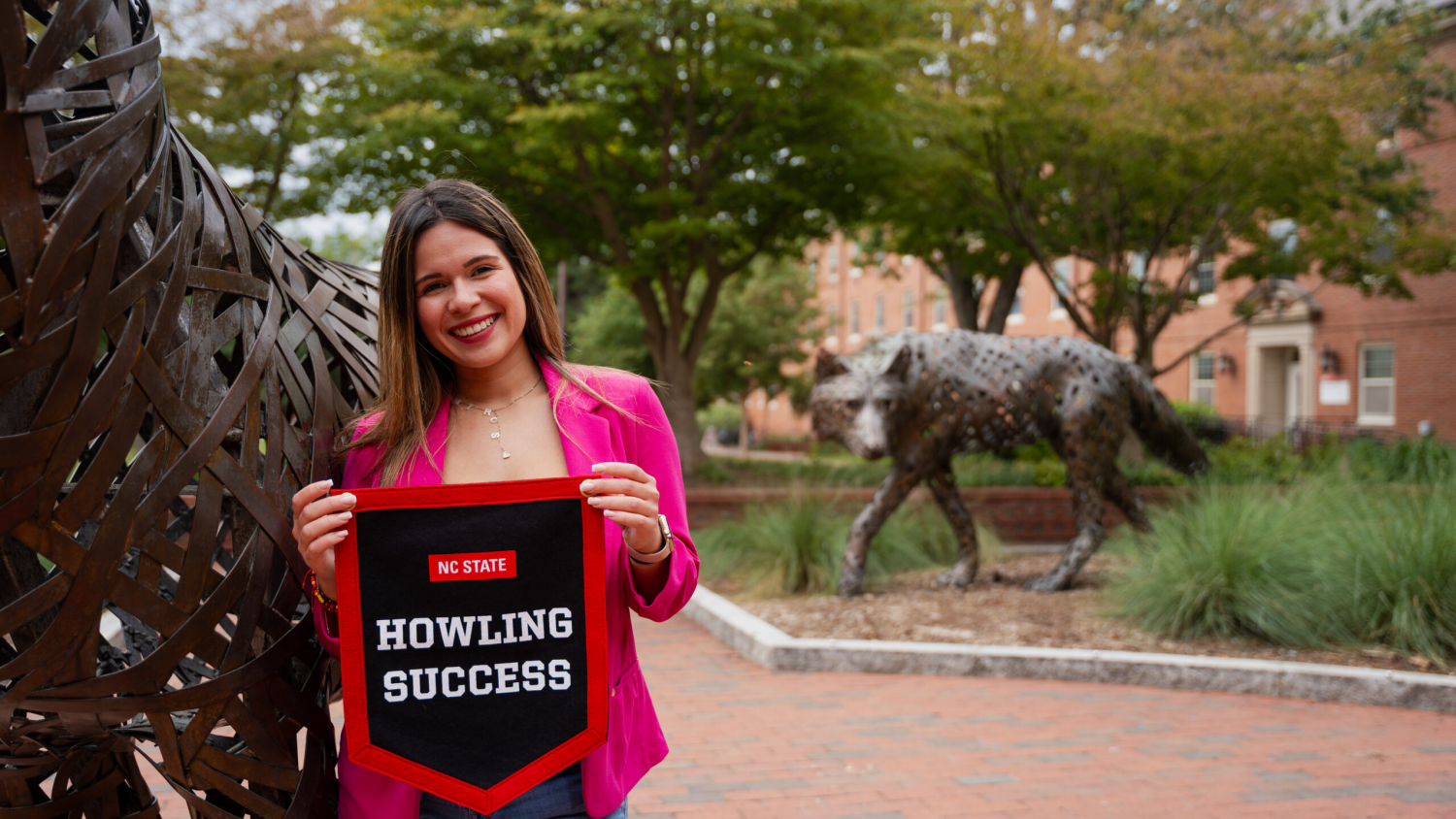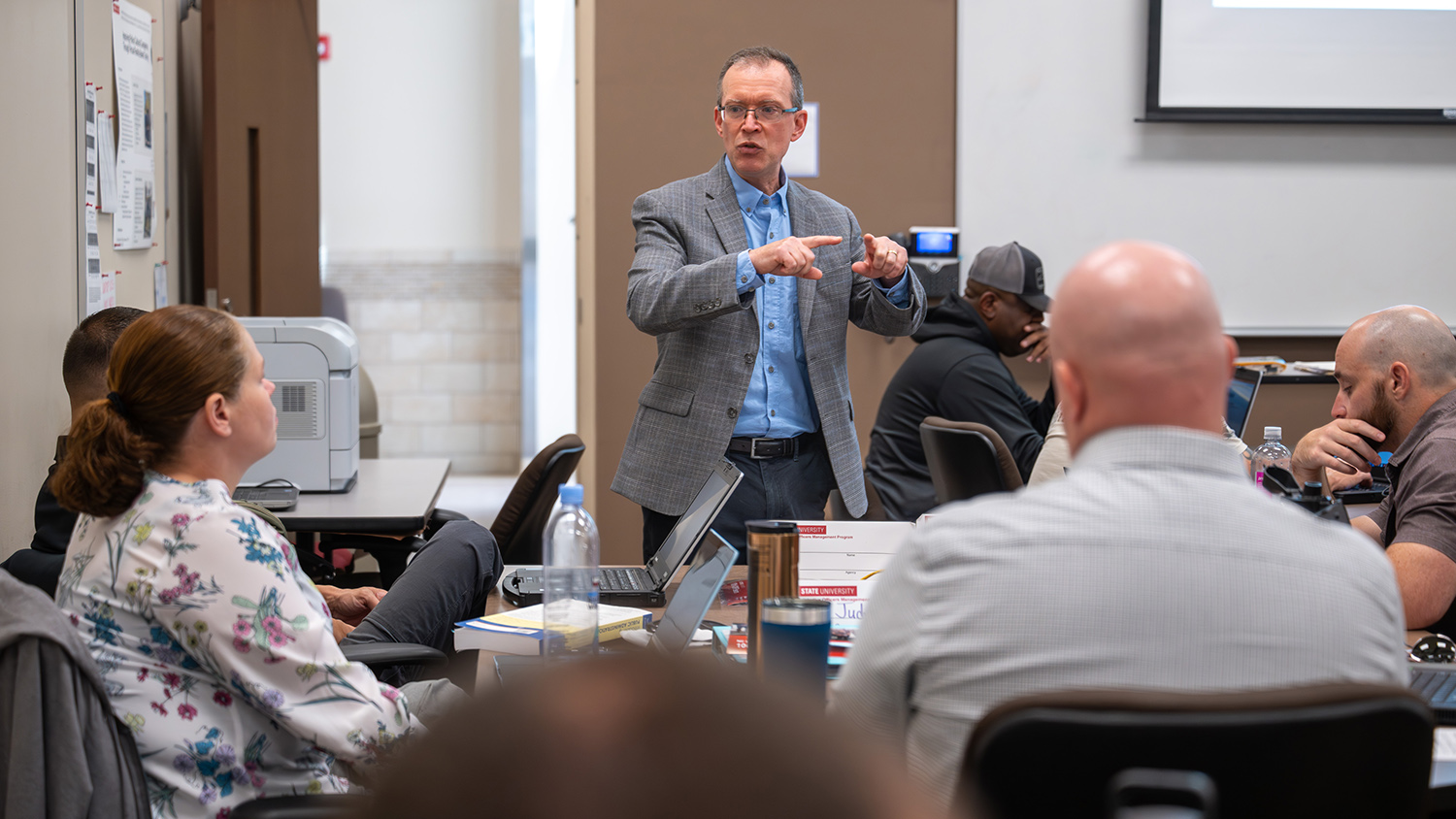Hope is Not Lost, It’s Wearable


Internships look great on a resume and provide an opportunity for students to figure out their likes and dislikes before they graduate. Jessica Ekstrom intended to do just that when she began an internship. Instead, she found hope, purpose, and eventually, her own nonprofit.
During the summer of 2011, Ekstrom, a senior double majoring in communication and public relations, interned at the Make-A-Wish Foundation of Central and Western North Carolina. The experience changed her life. Ekstrom spent that summer making wishes come true for children with cancer. From granting trips to Disney World, to connecting girls with their favorite celebrities, Ekstrom saw how their faces lit up the moment their dreams came true, and decided to do something more for these girls who had touched her so deeply.
Ekstrom saw the loss of confidence and low self-esteem in those girls who undergo chemotherapy and lose all their hair. “I found that a lot of the girls like to wear headbands instead of wigs when they lose their hair to chemotherapy,” says Ekstrom. She sat down with a pad and pencil and started coming up with ideas. A “one for one” business model, resembling TOMS Shoes, came to life. Ekstrom wanted to start a new trend: fashion that makes a difference one sale at a time.
Ekstrom founded Headbands of Hope, which sold stylish headbands while helping fund childhood cancer research, and spreading hope to all girls. For every headband purchased, one is given to a girl with cancer and $1 is donated to the St. Baldrick’s Foundation to fund life-saving childhood cancer research.
Being able to give back and help those girls in the hospital while raising awareness about childhood cancer has been rewarding for the young CEO. “Nothing compares to the smile on those girls’ faces when they receive their headbands,” she says.
As challenging as starting a new company can be, Ekstrom found support across North Carolina State University. The Poole College of Management guided Ekstrom through writing her business plan, while the College of Textiles pointed her toward suppliers and headband styles. “As a CHASS student, these were areas where I was less familiar,” she says. “I asked department heads to send emails to students and met with those who were interested and could help.”
Ekstrom also found a mentor in Dr. Maria De Moya, an associate professor in the Department of Communication. They meet weekly, and Ekstrom says De Moya gives both advice and encouragement.
Students across campus have shown support for Headbands of Hope. University Recreation members proudly wear the headbands that change lives during fitness classes, while another NC State student-founded charity, Beard Gang, asked Ekstrom to be an event partner with them during the NC State basketball season.
“I was always a proud Wolfpacker, but the support I received from students and faculty since starting Headbands of Hope has made me even more proud to be a part of such an amazing institution,” says Ekstrom. “It’s amazing how many people are willing to use their area of expertise to come together for a greater cause.”
One business outcome that still surprises Ekstrom has been the number of students who have contacted her with thanks for giving them the courage to believe in themselves, their ideas, and their capabilities. “I never imagined I would be an inspiration to other entrepreneurial students,” she says.
Ekstrom recalls reading stories about young women making a difference in their community. “I always knew I wanted to be one of them,” she says. “Now I see myself in those same publications. It’s the best feeling knowing there are other girls reading about me right now who could be inspired to start something like I did.”
Through Headbands of Hope, Ekstrom has created her dream job: one that she wakes up and feels great about. She also wants it to grow, to expand and have new designs, and maybe even a boys’ line for hats. However, the self-described optimist says she also hopes that she’ll be out of a job in 10 years. “I’m one of the few people that can say I would love nothing more than to be out of a job,” she says, “if that means there’s a cure.”
By Kristie Demers, CHASS Communication Intern


